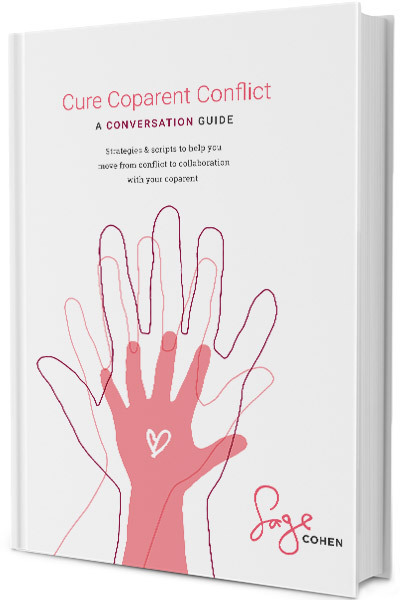The tricky thing about telling the truth is that there is no single truth. A diamond has endless refractions, and so do the events we live through. How we dig a moment up, shape it, and polish it influences what we can see and feel at any given time. But this process is in constant flow, as we are.
The way we tell our stories has the power to shape our relationships—and our lives. ![]()
I am plagued with the inevitabilities of inaccuracy as I write here at Radical Divorce. And I am obsessed with self-responsibility as I tell stories that involve other people.
My essay “Why I Turned Down The New York Times” in Kerry Cohen’s fabulous new book, The Truth of Memoir considers one such struggle to honor the ambiguities and the contradictions of shared experience. In this excerpt, I am recounting my conversation with a New York Times columnist who was considering interviewing Pete and me for a story about “what happened” in our marriage:
As the journalist pressed me for my thesis statement about why our marriage ended, I became increasingly uncomfortable. I was giving her metaphors about the mismatch of my depths and Pete’s heights, but she wanted facts.
“Remember that New Yorkers are going to be reading this article. They’re going to want to understand what actually happened here,” she advised, steering me toward the clincher.
The problem wasn’t that I had grown too “woo-woo” since moving to the west coast to give a clear, factual answer. Though it took me a few hours after our call to understand, the problem was that I was fundamentally opposed to giving such an answer.
Pete and I had not betrayed each other in any kind of conventional way. There had been no affair. No lies or deceit or violence. I had a very specific moment to point to when I knew that it was over, but this was my moment, and it was hinged to a lifetime of moments that could not be summed up in one sentence. There seemed no way to say it without blame. And this was the whole point of my project—to move away from blame and instead seek the opportunities of each heartbreak and hardship.
I knew enough from a lifetime of storytelling to expect that twenty years from now, Pete and I would likely each have a sentence or two that distilled the entire experience of our relationship to a “Why it ended” synopsis. Maybe we’d even use the same two sentences. But it was all still too fresh. I was still writing myself out of the hole. I could not send the arrow of a summary statement through my heart or his. Whatever I might say would not be true enough, and might not even be true at all.
Many of us were told as children, “If you can’t say something nice, don’t say anything at all.” There is good wisdom in this. But I’d modify it to say, when hearts are on the line, “If you can’t say something absolute, don’t say anything at all.” There will be plenty of time to declare “what happened” once and for all after the story settles.
Share this Post

